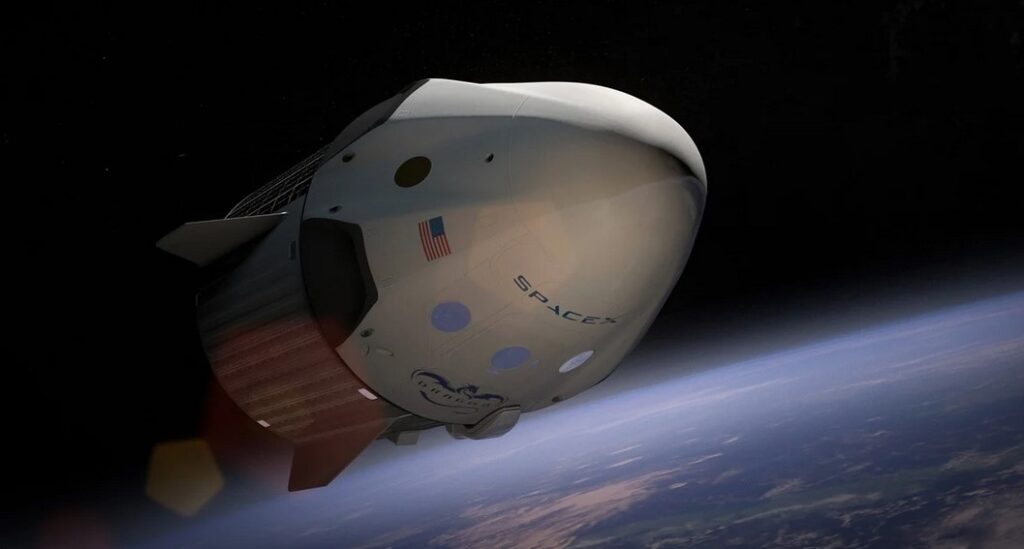 By B.N. Frank
By B.N. Frank
Warnings about dangerously high levels of space junk are only getting scarier (see 1, 2). In fact, there is a growing risk of space junk causing human fatalities (see 1, 2)! The launching of space vehicles in itself is also NOT environmentally friendly. Adding insult to injury, high-speed broadband internet connections can be achieved via safer and more secure methods than wireless-radiation emitting satellites! Unfortunately pending U.S. bills would allow the launching of hundreds of thousands more satellites with NO environmental review. The Federal Communications Commission (FCC) has made it easier for satellites to be launched more quickly as well! Argh!
In regard to SpaceX Starlink broadband satellites in particular, there seems to be no end to problems associated with them (see 1, 2, 3, 4, 5, 6, 7). For those keeping track, here ya go.
From Ars Technica:
Clearing one’s orbit —
SpaceX takes a proactive step toward responsible behavior in orbit
“We commend this commitment as a first step.”
SpaceX announced this week that it will voluntarily bring down about 100 of its first-generation Starlink satellites, which provide broadband Internet from low-Earth orbit, as part of its commitment to “space sustainability.”
The satellites are presently operational and serving Internet customers. However, in a statement, the company said, “The Starlink team identified a common issue in this small population of satellites that could increase the probability of failure in the future.”
This only represents a small fraction of the Starlink megaconstellation, which SpaceX has been launching on Falcon 9 rockets over the last half-decade. To date, SpaceX has put nearly 6,000 satellites into orbit a few hundred kilometers above the planet. This rapid growth in the company’s constellation has raised widespread concerns about the cluttering of low-Earth orbit and the potential for a profusion of debris.
Previously, SpaceX has initiated controlled de-orbits of 406 satellites. The vast majority of these have already entered Earth’s atmosphere and burnt up. However, 17 have become non-maneuverable. These are in decaying orbits and will eventually burn up in Earth’s atmosphere. Until such time they are being tracked to prevent collisions with other satellites.
In its announcement this week, SpaceX is saying it will bring down about 100 additional Starlink satellites.
Why is SpaceX doing this?
The company said it is being proactive in deciding to bring down satellites that are currently operational.
“While this proactive approach comes at the cost of losing satellites that are serving users effectively, we believe it is the right thing to do to keep space safe and sustainable—SpaceX encourages all satellite owners and operators to safely de-orbit satellites before they become non-maneuverable,” the statement said.
If nothing else, this is a clever public relations move to get out ahead of satellite de-orbits that the space-tracking community would have spotted eventually. SpaceX is controlling the narrative, and it seems to have worked. The release of this information has, based upon several people I have spoken with, engendered good will in the community of scientists and activists who worry about orbital debris, clutter, and the sustainability of activity in low-Earth orbit.
However, there appears to be more to this announcement than simple public relations. SpaceX operates nearly two-thirds of all the active satellites in low-Earth orbit, and it is taking responsibility upon itself to reduce the likelihood of uncontrolled satellites whizzing around the planet hundreds of kilometers above the surface.
In this sense, SpaceX has taken an important step toward the establishment of a norm: proactive de-orbiting of one’s satellites.
What are the implications of it?
One of the fiercest protectors of low-Earth orbit is Moriba Jah, a co-founder and chief scientist at Privateer, a company that helps monitor congestion in orbit and seeks to enable sustainable growth of the new space economy. Jah told Ars he welcomed this step by SpaceX.
“Ensuring the safety and accessibility of space for all stakeholders is essential and we commend this commitment as a first step,” he said. “Proactive measures to deorbit satellites and share position information represent significant steps toward mitigating the risks associated with space debris.”
However, he added, this is just an interim step toward what should be a long-term goal—the recycling of satellites in space.
“While it may seem economically prudent to deorbit satellites and let them burn up in the atmosphere, the long-term implications of such practices on space sustainability, and the atmosphere itself, cannot be overlooked,” he said. “The long-term path to a circular space economy is in the adoption of reusable and recyclable satellites.”
This approach would reduce the potential for orbital debris and foster a culture of responsible space operations.
There has been some government leadership in this direction. The United States, primarily but not exclusively through NASA, has been pushing for in-space repairing and reviving of satellites to extend their useful lifetimes, including refurbishment activities. Additionally, the European Space Agency has embraced a “Zero Debris Charter” to drive the development of technologies required for no more debris to be left in orbit by 2030.
In releasing this statement, and proactively deorbiting its own spacecraft, the world’s largest operator of satellites has indicated that it wants to play ball.
Eric Berger is the senior space editor at Ars Technica, covering everything from astronomy to private space to wonky NASA policy, and author of the book Liftoff, about the rise of SpaceX. Eric has an astronomy degree from the University of Texas and a master’s in journalism from the University of Missouri. He previously worked at the Houston Chronicle for 17 years, where the paper was a Pulitzer Prize finalist in 2009 for his coverage of Hurricane Ike. A certified meteorologist, Eric founded Space City Weather and The Eyewall, and lives in Houston.
Activist Post reports regularly about broadband, satellites, and unsafe technologies. For more information, visit our archives.
Image: Pixabay
Become a Patron!
Or support us at SubscribeStar
Donate cryptocurrency HERE
Subscribe to Activist Post for truth, peace, and freedom news. Follow us on SoMee, Telegram, HIVE, Minds, MeWe, Twitter – X, Gab, and What Really Happened.
Provide, Protect and Profit from what’s coming! Get a free issue of Counter Markets today.

